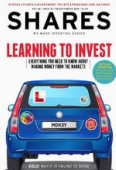Archived article
Please note that tax, investment, pension and ISA rules can change and the information and any views contained in this article may now be inaccurate.
How to take the emotion out of investing

It has been a volatile year for global equities as trade wars, geopolitical crises and Brexit negotiations have all soured investor sentiment.
It can be tempting to follow the herd and sell when things go sour or buy when everyone is confident, but investors should avoid acting impulsively and instead follow a clearly thought through strategy. Unfortunately, this is easier said than done.
In this article we talk to the experts about how people can adopt a practical response to investing and avoid emotions clouding their decision making.
IGNORING YOUR INNER EEYORE
Fear can often play a part in rash investment decisions, especially in light of traumatic experiences with long-lasting effects such as the financial crisis in 2008.
‘Try to put the depressing headlines into perspective, ignore your inner Eeyore and confront your fears with rational exuberance,’ advises 7IM senior investment manager Dr Alessandro Laurent.
Focusing on fear and the worst outcomes are clearly bad for investors hoping to keep a cool head, but what strategies can people adopt to avoid acting on natural emotional responses?
Potential strategies include building a diversified portfolio, buying low and selling high, as well as avoiding timing the market.
One of the best ways investors can guard against volatility is diversification by spreading their money across various assets, including equities, commercial property and cash.
Having too much money in one area is dangerous according to Chase de Vere communications head Patrick Connolly.
Underperforming areas can negatively hit finances and lead to irrational decisions such as selling out after losses have already been made – or investors can be too optimistic and take on too much risk.
DON’T TRY TO TIME THE MARKETS
Drip feeding cash deters people from trying to time the market. James Hambro financial planner Charles Calkin warns against timing the market as it is ‘notoriously difficult.’
‘Try to remember that bubbles always burst and markets are good at picking themselves up off the floor, even when they look unconscious,’ comments Calkin. For this reason it is often said that ‘time in the market is better than timing the market’.
When markets are falling it is easy to let your emotions take over, making you nervous and reluctant to put money into shares.
In the short-term this might protect you from losses, but you could also miss out on returns when stocks rebound. By investing on a monthly basis, you will be well positioned for a recovery when it comes.
Another good strategy is to regularly rebalance financial portfolios. The idea is to periodically sell assets that have gone up and buy more of those that have fallen, in order to get back to a more balanced allocation towards different asset classes.
This helps to keep a more consistent level of risk exposure, and also encourages the discipline of selling assets that have appreciated and buying those that may have become relatively and temporarily undervalued.
DON’T LOOK TOO OFTEN
Equities can experience sharp moves with some global markets suffering declines on the back of factors outside of investors control such as potential trade wars and the direction of interest rates.
For investors, it can be scary seeing a sector out of favour or declines in global stock markets.
One way to avoid the emotional rollercoaster of short-term volatility is to not look at your portfolio every day.
Calkin believes investors will be happier (and potentially wealthier) by leaving their portfolio alone – as long as it is well balanced and diversified.
WHY PASSIVE FUNDS COULD BE A SMART OPTION
Connolly believes people can often try and pick outperforming funds if there is a lot of hype or if it is led by a star manager.
This can be a risky move as people can become emotionally attached to funds, making it more difficult to make logical decisions.
By choosing a passive fund, investors are less likely to try and predict whether it will outperform or underperform and will also benefit from lower charges. (LMJ)
Important information:
These articles are provided by Shares magazine which is published by AJ Bell Media, a part of AJ Bell. Shares is not written by AJ Bell.
Shares is provided for your general information and use and is not a personal recommendation to invest. It is not intended to be relied upon by you in making or not making any investment decisions. The investments referred to in these articles will not be suitable for all investors. If in doubt please seek appropriate independent financial advice.
Investors acting on the information in these articles do so at their own risk and AJ Bell Media and its staff do not accept liability for losses suffered by investors as a result of their investment decisions.

 magazine
magazine








